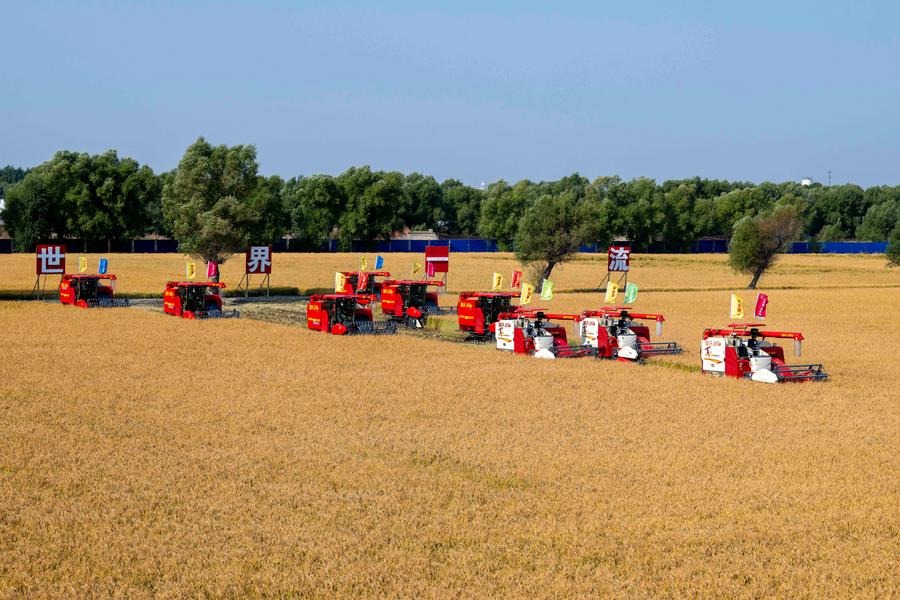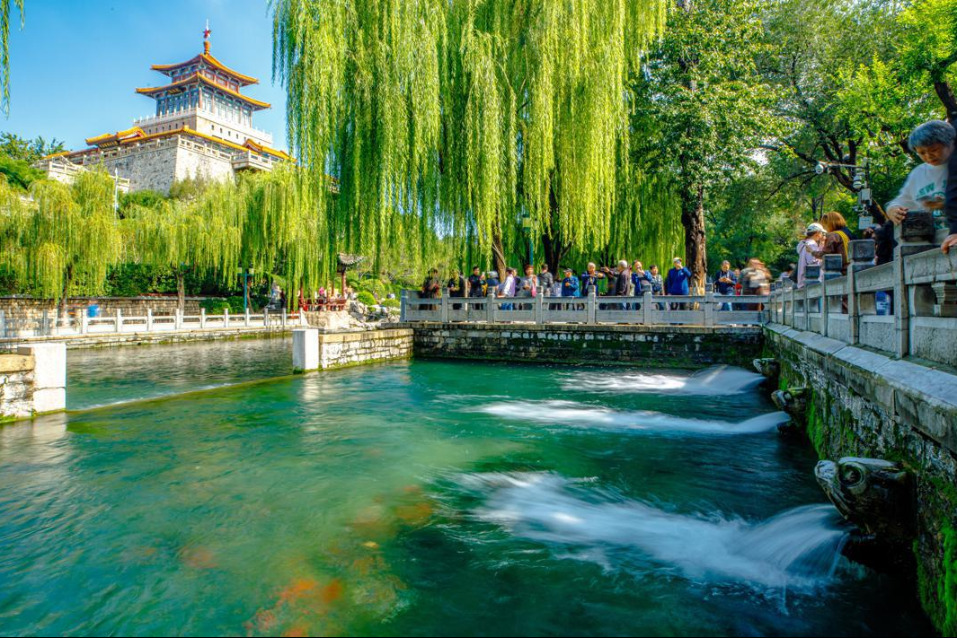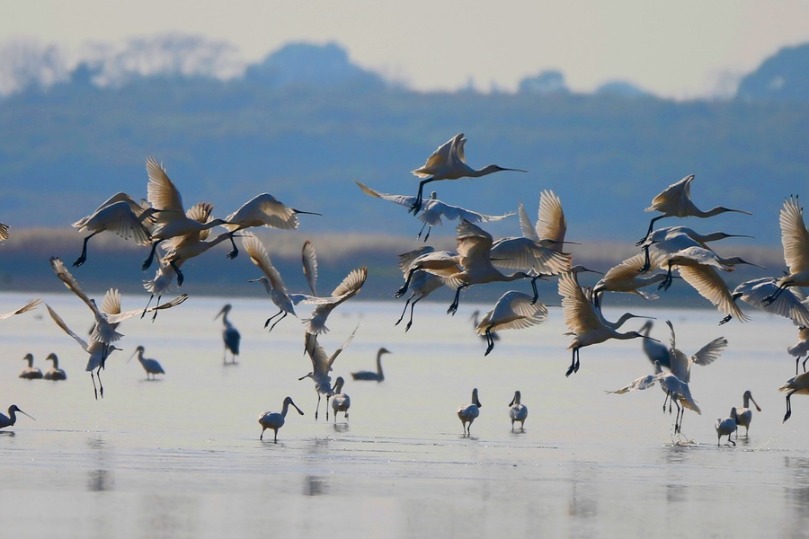Country moods


New opportunities
The SAR's ecotourism initiatives have brought hope, with new opportunities potentially paving the way for the revitalization of the ancient Hakka community. In the wake of the government's mega plan for developing the Northern Metropolis, which boasts abundant eco-resources, various sectors of the community have called for barriers to be removed to unlock the economic potential and promote ecotourism in the rural areas.
In the latest Policy Address unveiled in September, the challenges faced by Chan and her fellow villagers were acknowledged. To enhance the growth of local thematic immersive tours and elevate Hong Kong as an international culinary hub, the government has pledged to refine application guidelines to facilitate the operation of homestays and holiday camps in rural areas.
Support will be given to transforming village houses into either homestays or community eateries. A government source said the initiative is in line with the broader goal of promoting urban-rural integration.
At a Legislative Council meeting in March focusing on boosting marine tourism, Secretary for Culture, Sports and Tourism Rosanna Law Shukpui said the government is committed to exploring more avenues for easing regulations, especially with regard to applications for operating rural guesthouses and food businesses.
She pledged to introduce more optimization measures, saying her department had helped 11 guesthouses, takeout shops and restaurants to obtain licenses so far. The businesses span diverse locations like Yim Tin Tsai, Lai Chi Wo — a centuries-old Hakka walled village in the northeastern New Territories — and the 400-year-old village of Kuk Po which is adjacent to the Sha Tau Kok Frontier Closed Area. Later in a LegCo meeting in July, Undersecretary for Development David Lam Chiman says efforts will be made to create new business opportunities in villages and enhance visitor experiences of rural culture. The authorities are also exploring other measures under the existing Small House Policy framework to promote the establishment of village shops, restaurants and home-stay lodging facilities.
More government departments are joining the initiative, laying the groundwork for the development of ecotourism.
According to a survey on tourism conducted by the Junior Chamber International Hong Kong, more than 40 percent of 410 overseas respondents from 35 countries and regions interviewed said ecotourism is their top choice when visiting Hong Kong, surpassing historical sites, arts and cultural attractions, food and shopping, and architectural landmarks.
Chinese mainland travelers have ample choices, as they are able to book everything from budget-friendly day trips to longer, curated ecotourism excursions online.
The trend of individual travel is also strong, with social media platforms like Xiaohongshu providing popular guidelines, including one giving details of hiking the MacLehose Trail posted in August last year, drawing more than 110,000 responses. This is largely driven by tourists from Guangdong province whose geographic proximity to Hong Kong, along with convenient transportation, make them more eager to explore the city's countryside. Increased mutual travel flow within the Guangdong-Hong Kong-Macao Greater Bay Area is now a tourism industry consensus.
A report last year by Tongcheng Travel — an online travel platform on the mainland — said there has been strong reciprocal travel interest between Guangdong and the Hong Kong and Macao SARs. Residents from both cities were the second- and third-largest groups searching for information on travel to Guangdong cities, while Guangdong residents led searches for the SARs.
According to mainland railway data, 7.67 million passenger trips were made to in Hong Kong's West Kowloon Station in the first half of this year. Nearly 80 percent (6.1 million trips) of them were from Guangdong, including 2.86 million trips from Shenzhen — a year-on-year increase of 21.6 percent.
Travel within the Greater Bay Area is expected to grow, a view shared by the Hong Kong-based Asia Tourism Exchange Center. In a recent report, the nonprofit organization highlighted factors that have boosted tourism to Hong Kong and Macao, including the expanded Individual Visit Scheme, multi-entry visas for Shenzhen and Zhuhai residents, and smoother Customs clearance procedures, while noting an upcoming policy that would allow Guangdong vehicles into Hong Kong.




































